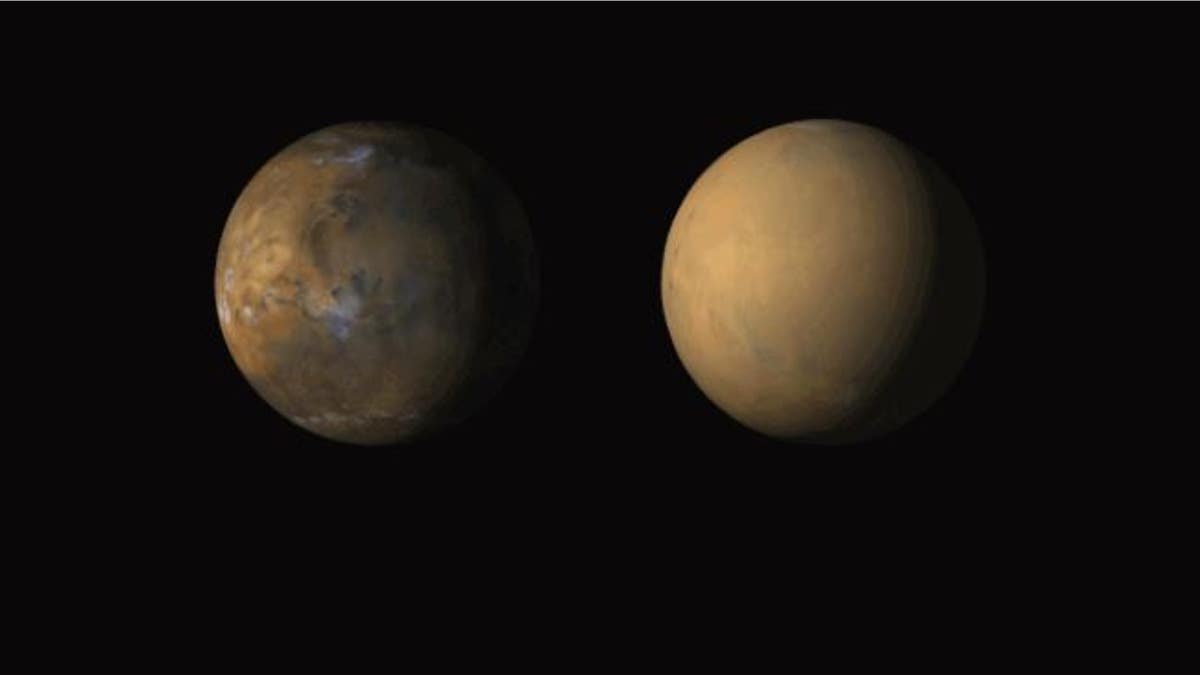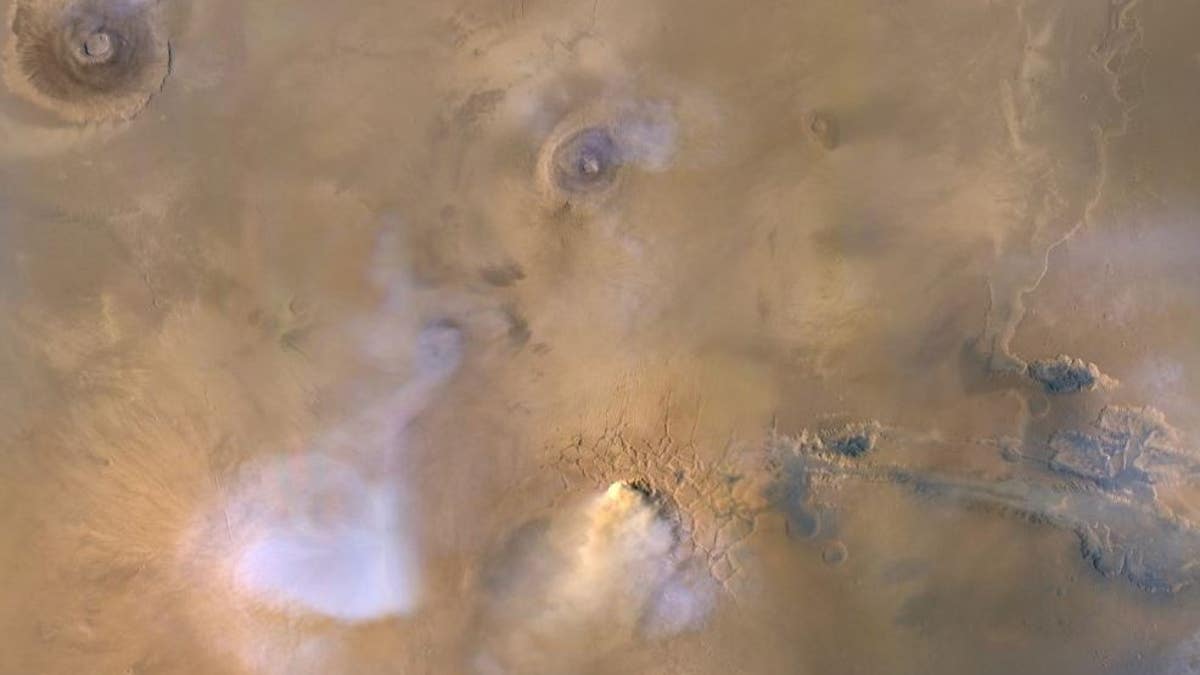Fox News Flash top headlines for Dec. 3
Fox News Flash top headlines for Dec. 3 are here. Check out what's clicking on Foxnews.com
Gigantic dust towers on Mars that were produced during global storms could play a unique role on the planet, according to NASA.
Although dust storms are common on the Red Planet, they can sometimes be treacherous enough to wreak havoc -- which happened last year when a major storm halted Opportunity rover's mission.
Two recent papers highlight dust towers, which are concentrated clouds of dust that stretch upward into the atmosphere, similar to thunderstorm clouds on Earth.
FROTHY, TOXIC FOAM COVERS FAMOUS BEACH

The Mars Color Imager (MARCI) camera onboard NASA's Mars Reconnaissance Orbiter (MRO) shows the typical state of Mars, seen here in May 2018, and what the planet looked like during a planet-encircling dust storm in July 2018. (NASA/JPL-Caltech/MSSS)
According to NASA, dust-trapped water vapor may be riding them like an elevator to space, where solar radiation breaks apart their molecules. This could help explain how Mars' water disappeared over billions of years.
"Normally the dust would fall down in a day or so," the paper's lead author, Nicholas Heavens of Hampton University in Hampton, Virginia, said in a statement. "But during a global storm, dust towers are renewed continuously for weeks."
ANCIENT BUBONIC PLAGUE OUTBREAK MIGHT HAVE BEEN EXAGGERATED, STUDY SHOWS

The yellow-white cloud at the bottom center of this image is a "dust tower" on Mars, as seen by NASA's Mars Reconnaissance Orbiter on Nov. 30, 2010. (NASA/JPL-Caltech/MSSS)
Scientists are unsure what causes the global dust storms, and they've only studied fewer than a dozen at this point.
"Global dust storms are really unusual," Mars Climate Sounder scientist David Kass of JPL said in a statement. "We really don't have anything like this on the Earth, where the entire planet's weather changes for several months."









































